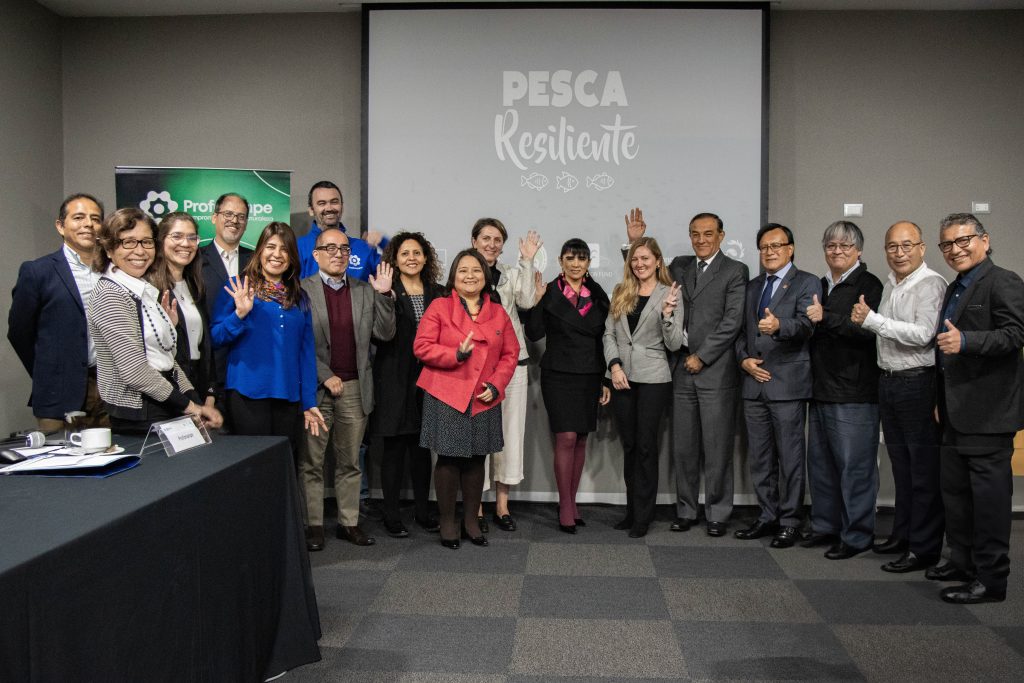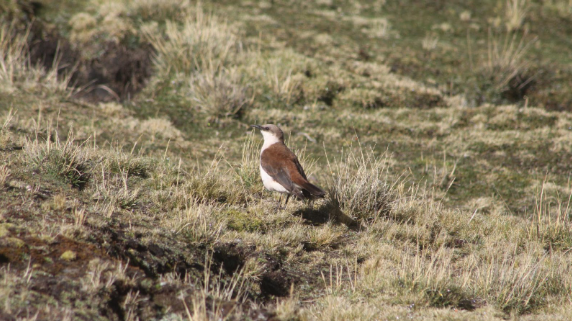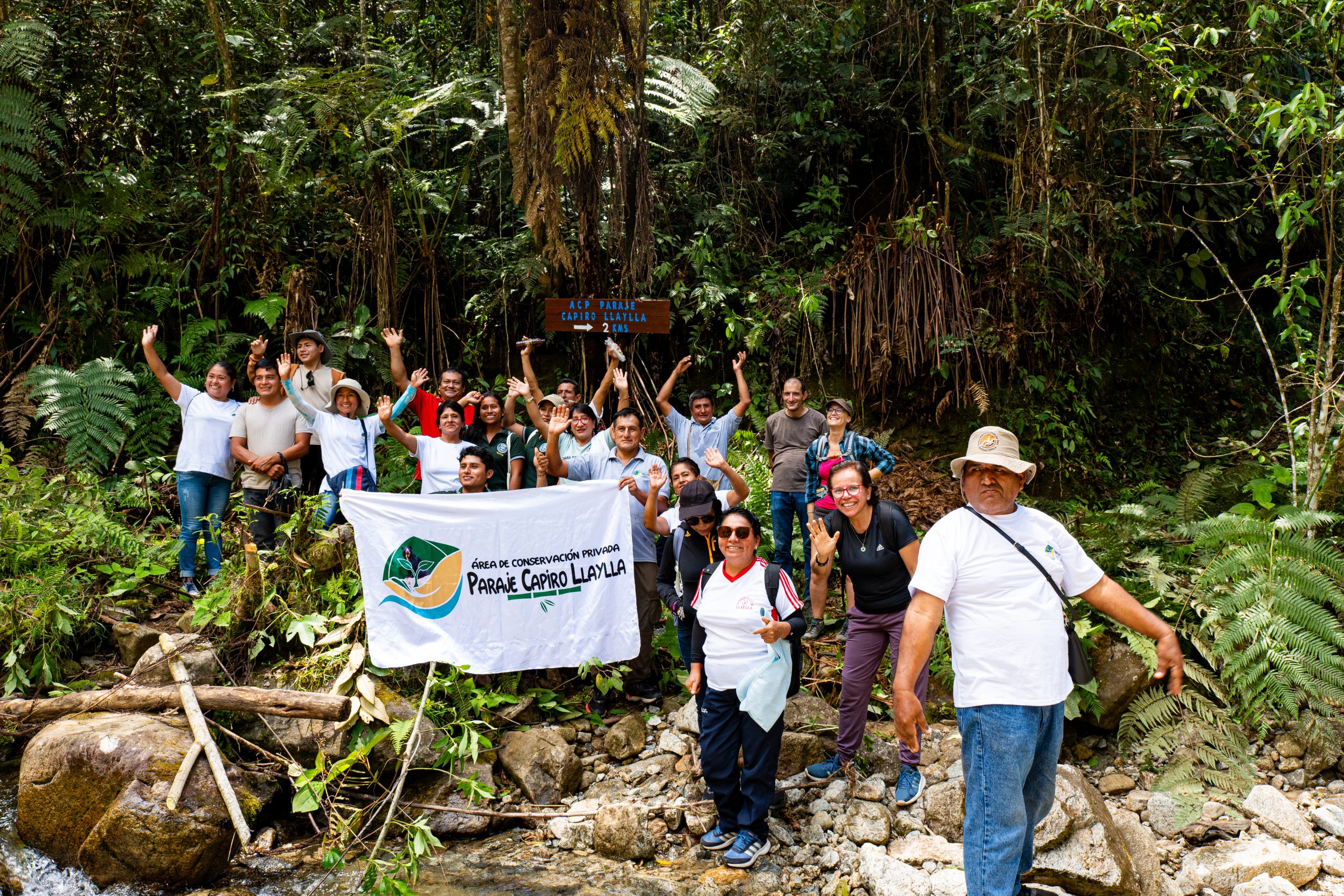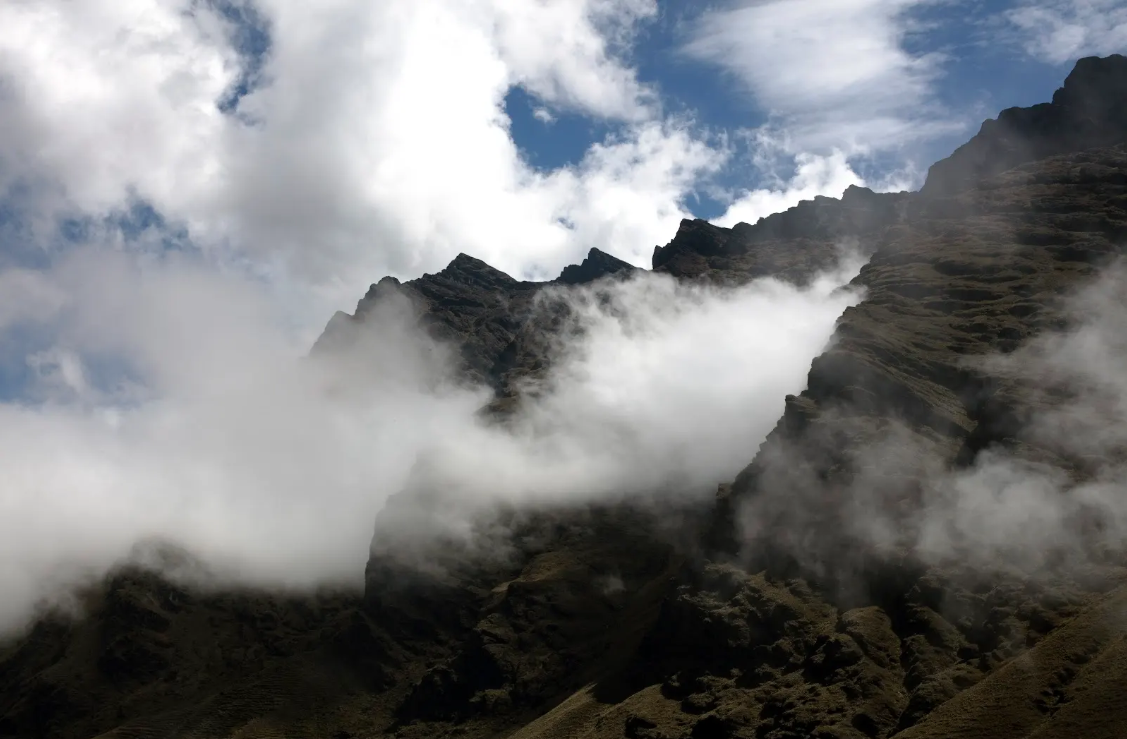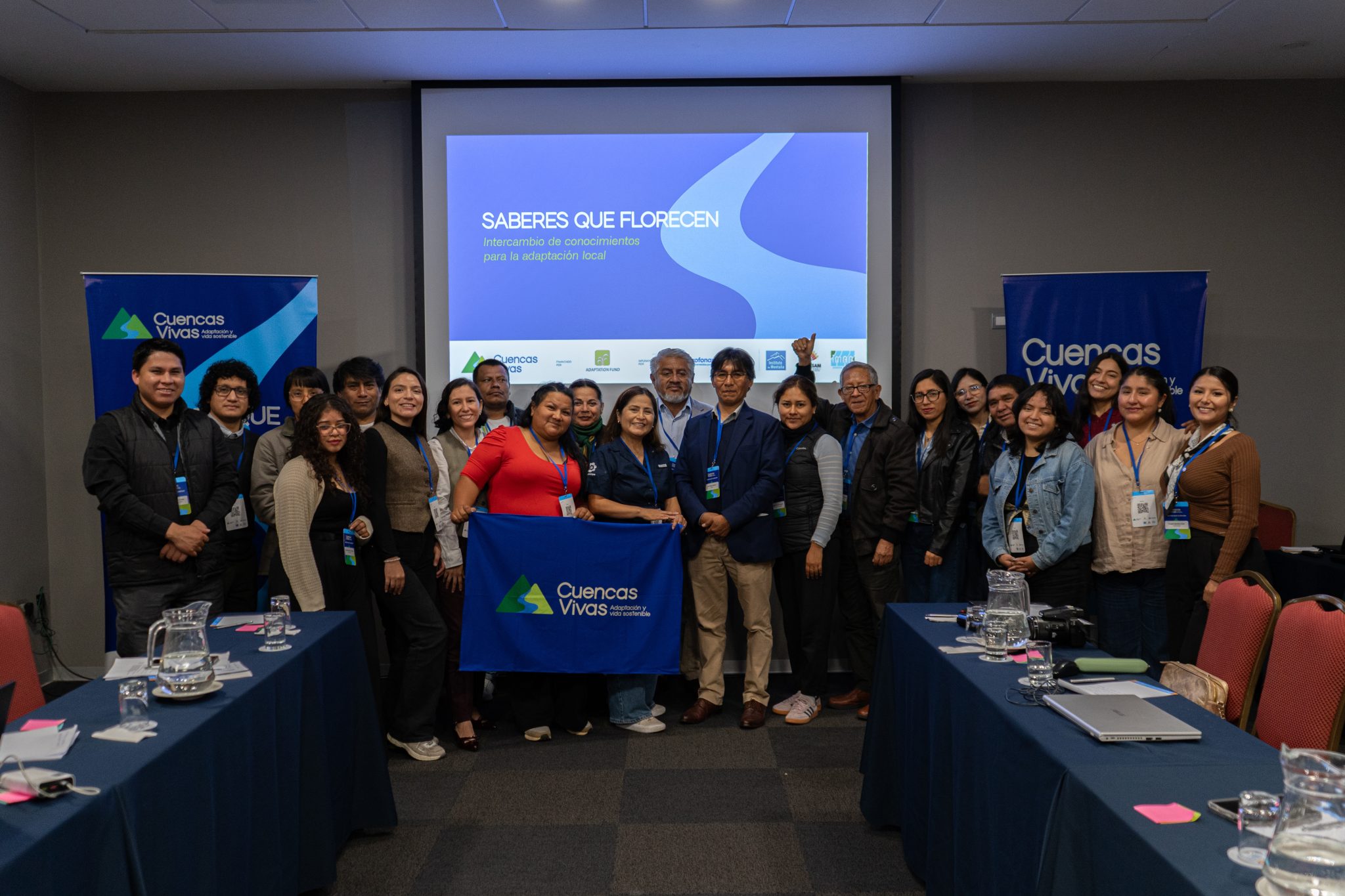On Monday, October 16, Profonanpe received a delegation from the Adaptation Fund, an international entity that supports projects aimed at helping developing countries face the challenges of climate change. The visit aims to gather valuable information from the project “Adaptation to Climate Change Impacts on Peru’s Marine-Coastal Ecosystem and Fisheries”, which was carried out in Máncora and Huacho. This marks a milestone, as it is the first time that the fund focuses on the fisheries sector and marine ecosystem, and it is expected that the information collected will contribute to a better understanding of the implementation of this project.
“The Adaptation Fund (AF) conducts monitoring missions for some projects in the portfolio, because it is part of the knowledge management strategy and it is also part of the mid-term strategy of the AF. A key component is the learning and knowledge management component,” added Martina Dorigo, Climate Change Specialist at the Adaptation Fund.
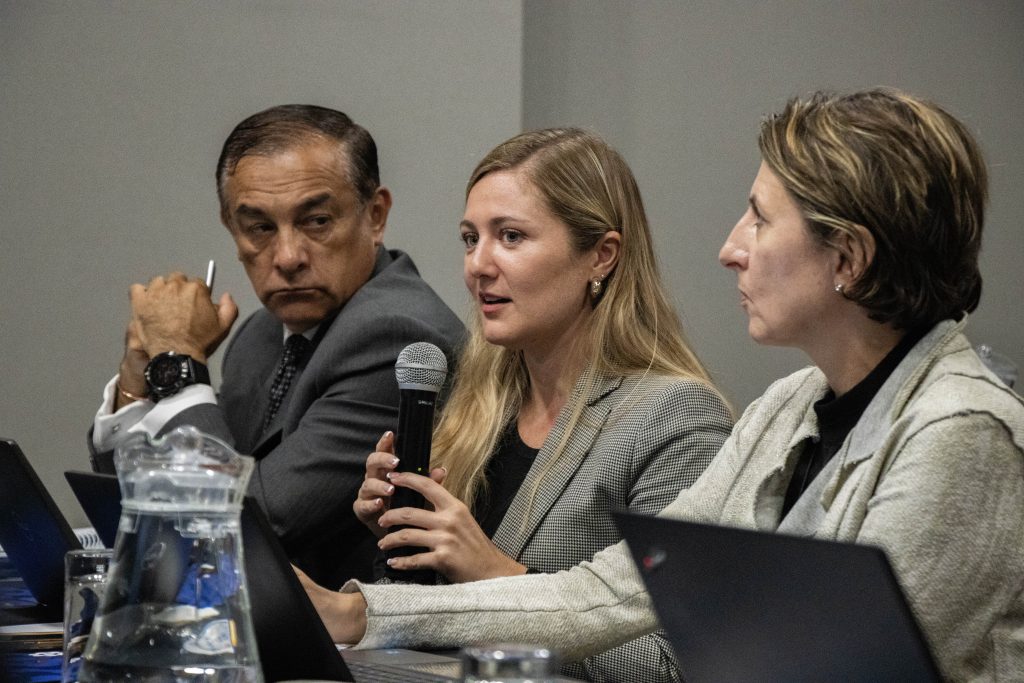
Martina Dorigo, Climate Change Specialist and Cristina Dengel, Knowledge Management Coordinator of the Adaptation Fund together with José Paz, President of the Board of Directors of IMARPE.
The project’s main achievements include advances in the implementation of sustainable fishing practices, advanced environmental monitoring systems and regulations to strengthen the resilience of coastal ecosystems and local communities in the face of climate change. Women’s leadership in key areas such as gill nets, aquaponics, tourism, marketing and biofertilizers is highlighted.
Therefore, José Zavala, general coordinator of the Marine-Coastal Adaptation project, highlighted the gender approach to diversify activities that promote community adaptation. He exemplified this with the case of the biofertilizer trade, which has emerged as an outstanding source of income for the communities, especially for the women who have participated in this activity.
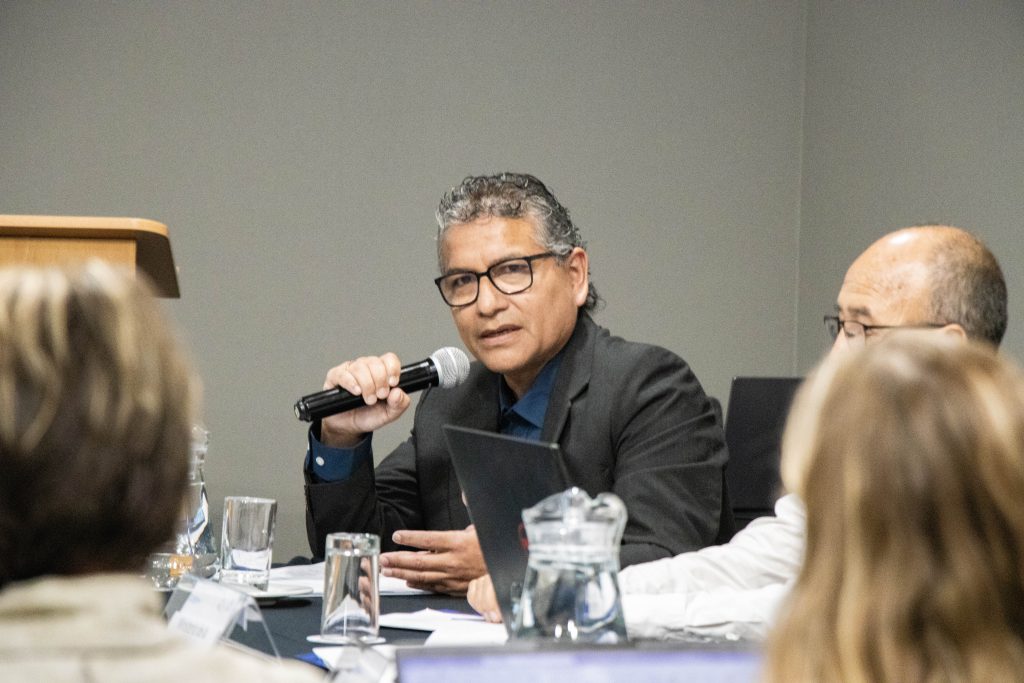
From the Ministry of Production, Úrsula León, Vice Minister of Fisheries and Aquaculture, explained the work that has been carried out in conjunction with the communities benefiting from the project. “The participation of women in fishing is extremely important, not only in the extractive activity itself, but also in the generation and commercialization of biofertilizers, that is, to be able to use fishing and aquaculture waste for the benefit of the environment,” said León.
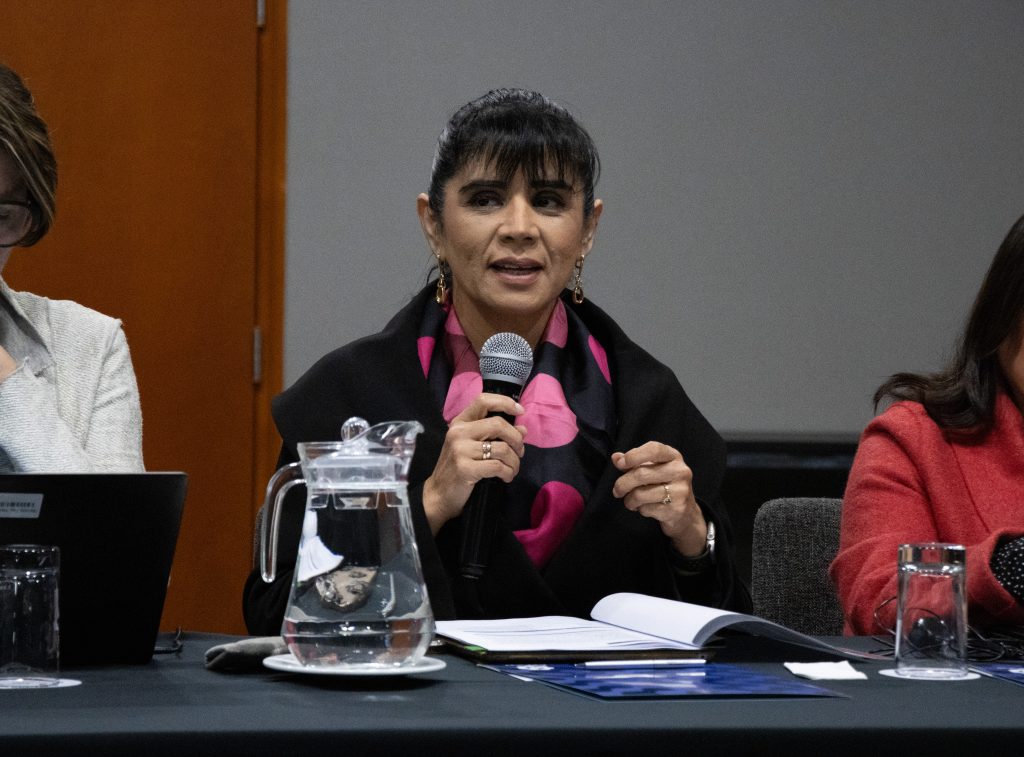
Finally, Anton Willems, CEO of Profonanpe, expressed his gratitude to the national entities that collaborated in the project, such as IMARPE, the Directorate of Artisanal Fisheries of the Ministry of Production, the National Program A Comer Pescado, the Ministry of the Environment and Sernanp. He emphasized the importance of inter-institutional collaboration and how this approach made it possible to gather valuable information on marine-coastal issues, which will serve as a reference for future projects related to fisheries. “This is a learning process of institutional architecture that is not minor, because the challenges of adaptation are going to have that when they reach the territory. In the territory, it is not a single entity that defines what is done in that territory, but rather the articulated dialogue between the different entities, generating complementarities and the capacity for specific interventions,” highlighted Willems.
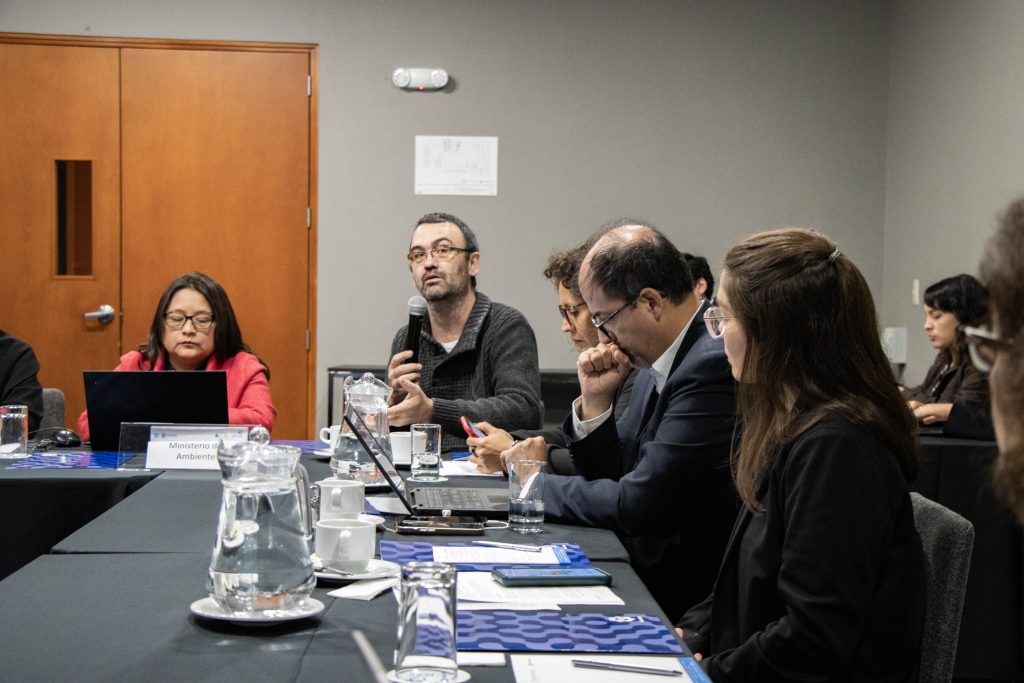
About the Marine-Coastal Adaptation Project
The project “Adaptation to the impacts of climate change on Peru’s marine-coastal ecosystem and fisheries” focuses its interventions in two pilot areas: Huacho (Punta Salinas – Végueta) and Máncora (Cabo Blanco – Máncora) to reduce the vulnerability of coastal communities to the impacts of climate change on coastal marine ecosystems and their fishery resources. This project was financed with more than US$6.5 million.
In 2016, the project was approved for financing from the Adaptation Fund, through Profonanpe. The project was executed by the Ministry of Production, in coordination with the Instituto del Mar del Perú (IMARPE) and the Executing Unit “A Comer Pescado” of the Ministry of Production, with an implementation period from 2018 to 2023.


